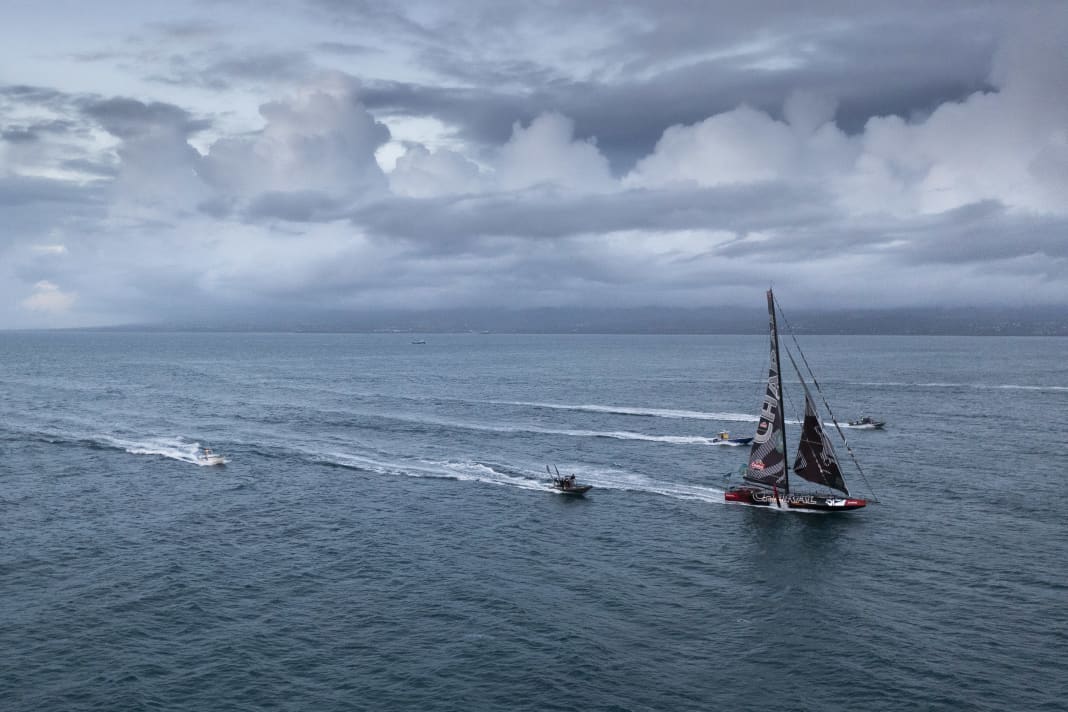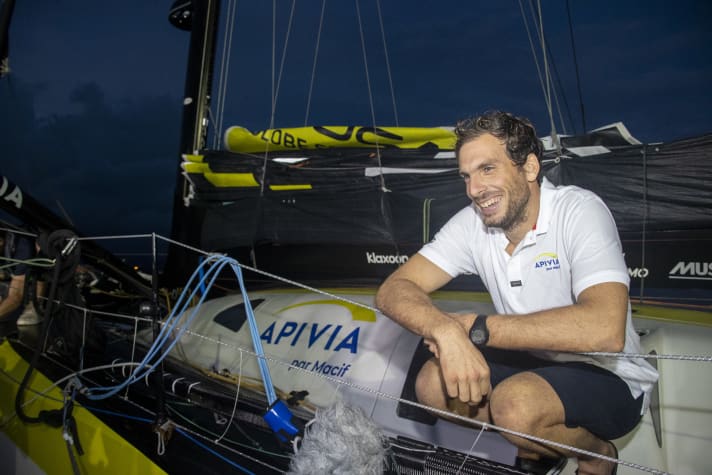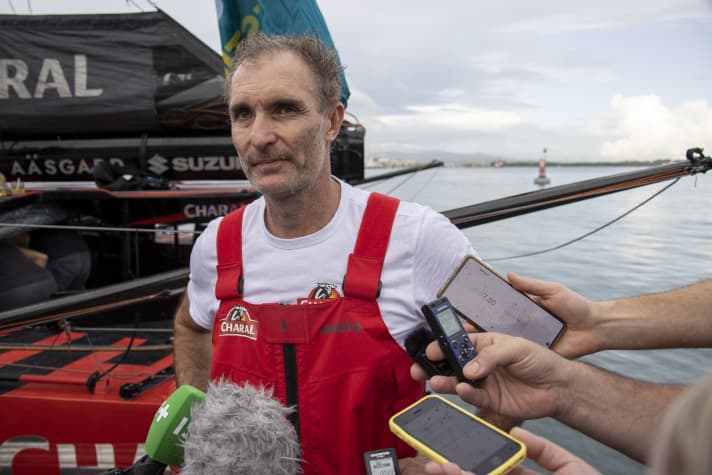





Exhaustion was written all over his face, just like all the solo skippers who sailed across the line off Pointe-à-Pitre today. And he should have felt like crying.
But Charlie Dalin, who had won every race so far this season, the uncatchable 2022 Imoca champion, the man who had led the Route du Rhum classification for ten days, only to finish second in the end, as in the Vendée, as in last year's Transat Jacques Vabre - he laughed.

This is not the position I had hoped for," he said into the cameras and microphones held up to him on the dock, "but I can't help but smile at a welcome like this."
He almost seemed relieved. And he certainly was, at least physically and mentally. Because the last two days were a wild ride on the verge of breaking and losing control, so gusty, so strong was the trade wind in the final phase of this altogether extremely demanding Route du Rhum.
"The race started well for me," summarised Dalin. "The manoeuvres went well, but I never caught a transition(from one weather system to the next, the ed.)that would have allowed me to pull away." As he admitted, he also had a technical handicap to contend with. His grinder failed shortly after the start, so he had to operate the winches directly in the covered cockpit. However, he deliberately kept this to himself so as not to make his competitors unnecessarily strong.
Even after losing the lead, which was mainly due to the better space sheet potential of Thomas Ruyant's "LinkedOut", Charlie Dalin never gave up. Approaching Guadeloupe, he fought his way back to within 15 nautical miles. But it was not enough.
"This morning (Thomas) took advantage of two squalls and got away. I was looking forward to a duel around the island. I thought he might(in the lee of the island) stop, but everything went as ordered for him."
This race is a sprint. I didn't have time to do anything other than concentrate on sailing."
This quote illustrates just how challenging the final phase was: "I was extremely tired this morning and didn't really see much of the coast of Guadeloupe. You always have to keep going. You exhaust yourself, take a few naps. In the Solitaire du Figaro, that's fine for three or four days, but eleven days - that's tough. Especially the second part. Normally you have time to send photos, shave, but not in this race. Gaps can widen or close quickly with these boats."
And then he went on to talk about the missed victory, which would have been the crowning glory of his journey with this boat, the perfect end to a perfect year: "It's hard for me not to have achieved first place. I would have been more stressed in the past, but I raced here like it was a Figaro. I still love this sport. Sailing in the trade winds while the boat glides along is fantastic."
I'm lucky to have a job like this and a boat like this."
Dalin sailed the 3,542 miles of the theoretical race course between Saint-Malo and Pointe-à-Pitre at a speed of 12.49 knots. He actually logged 4,353.88 miles and achieved a remarkable average of 15.35 knots despite the high proportion of upwind wind in the initial phase.
3rd place from a standing start: Why Jérémie Beyou has reason to be happy

Dalin wasn't the only one to miss out on the hoped-for victory. Jérémie Beyou also kept the tension high until the end. He crossed the finish line in third place only around an hour and a half after Dalin. On Sunday, despite the incredibly fast pace of the two front runners, he was still able to close the gap, with elapsed times of more than 450 miles - a possible indication that the V-rudder, which acts like a vertical stabiliser at the stern and allows his "Charal 2" to take off completely with the hull, could be a real competitive advantage.
That was something," said the well-trained Breton. "I can't remember the last time I slept."
Yesterday he wanted to recharge his batteries and find some peace and quiet. In vain. "I just couldn't fall asleep. The trade winds were so unstable. You can't eat, sleep or do anything on a boat in these conditions."
Beyou bowed before Ruyant's furious finish: "Thomas was so determined, so driven. I couldn't find his speed. I don't think we could accelerate much more than we did yesterday. It was a real competition. I wasn't good for a day or two and Thomas was relentless. He was just that one step above us."
He said of his "Charal 2": "I haven't quite got used to it yet. On the old boat, everything went by itself. We were looking for more speed with the new design, and that means a heavier boat. Eleven days of this is tough. You try to be reasonable, but sometimes I couldn't resist. You think twice about going 35 knots in a new boat. Once you've done it, it's a huge step forward. We have to see what she can do when she sails around the world in all kinds of conditions.
You have to stay on the ball when the others are pushing hard. If you don't, it's over for you."

